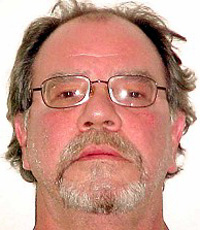 Following the state supreme court’s finding, a new trial was ordered.
Following the state supreme court’s finding, a new trial was ordered.
Shaffer was killed at his residence at 10270 W. 200 N, north of Kewanna, a home he rented from Carr and owned by Carr's mother. Shaffer died of a single gunshot wound to the face. His body was found in a wheelbarrow outside his home.
The murder occurred in the early evening of Nov. 4, 2006 when the defendant fired his shotgun directly into the victim's face during an argument between the two men, reportedly about the sale of some of Carr's mother's belongings. Police alleged both men were drunk. The defendant then drove to a bar in Monterey, and entered wearing blood-stained pants, according to papers filed with the Indiana Supreme Court and witness reports. The woman bartender, who knew Carr, soon after drove him home in his own vehicle, during which time Carr admitted to her that he had shot Shaffer. A second woman, a co-worker at the bar, followed them to Winamac in order to drive her friend back to Monterey, according to court filings.
The women then drove to Shaffer's home where they found his body and called police, according to trial testimony.
In his appeal, Carr, represented by attorneys Jay Rigdon and Adam Turner of Warsaw, charged there were four errors made during the trial, including admission of his taped statement the night of his arrest after he repeatedly invoked his right to an attorney.
Carr never testified in his first trial.
The Indiana Supreme Court overturned Carr’s murder sentence because a detective continued to interview Carr even after Carr invoked his right to counsel several times.
Carr claimed that he unequivocally and repeatedly invoked his right to counsel, so his statements made about the murder to the detective shouldn’t have been admitted into evidence. The state argued Carr’s requests for an attorney were ambiguous and if not, that any resulting error was harmless, according to a state law review of the case.
After the first trial, a first-level appeals court sided with the state and upheld Carr's conviction. But later, the state Supreme Court found for Carr on the grounds his right to an attorney was violated by the Fulton County Sheriff's Department detective who interviewed him.
However, the state’s high court upheld the lower court rulings on the defendant’s three other alleged errors in the appeals case, involving denial of his motion for discharge under Indiana Criminal Rule 4; limitations on defense questioning of the police detective; and refusal of tendered instructions regarding lesser included offenses.







